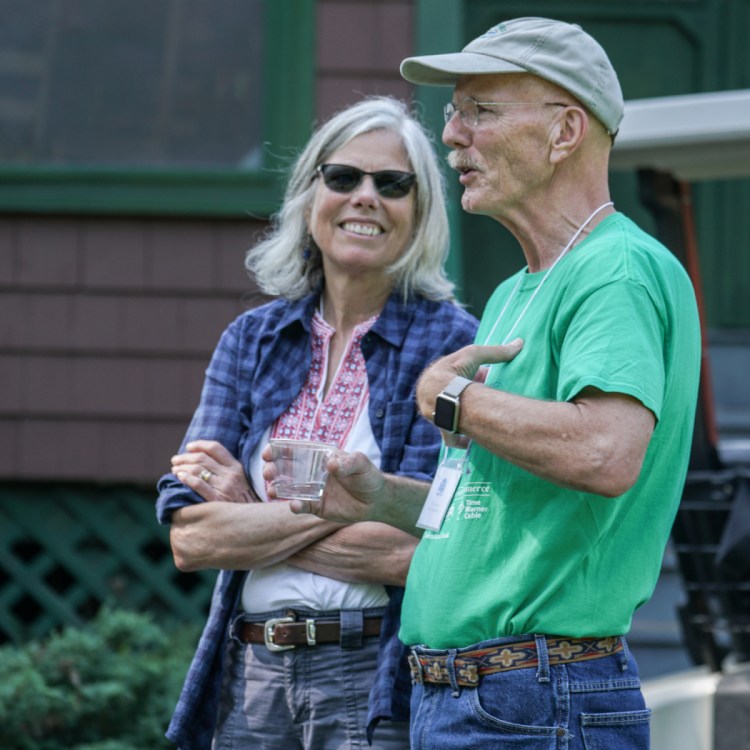FAYETTE — Kennebec Land Trust members learned, at the conservation group’s 30th annual meeting, of plans to create a new cemetery for conservation burials where the deceased could take their desire to protect nature to the grave with them.
The Winthrop-based nonprofit land conservation organization is close to a deal with an as-yet-unnamed landowner to secure more than 60 acres where it hopes to develop a “green” cemetery where bodies would be placed in biodegradable coffins or shrouds and buried in the ground, without a concrete burial vault, embalming fluids or a treated casket, which can all be harmful to the environment, executive director Theresa Kerchner told roughly 100 trust members Sunday.
She said the trust has been working behind the scenes for at least two years to find a parcel where the soils and site are right for green burials.
Jack Daley, a sophomore at Harvard University who served as one of two interns for the Kennebec Land Trust this summer and conducted research on the proposal, said the land trust, working with the state’s soil scientist, Dave Roque, researched sites across the land trust’s service area, and identified a 60-acre site in Fayette, in a rural area on a hillside with a great view and soils suitable for natural burials.
The land trust would sell cemetery plots on the parcel, via a dedicated website, while leaving the details of burials at the site to funeral homes and burial contractors, as long as they agreed to follow the conservation burial protocol.
Daley said the practice would in some aspects be a return to past practices, as embalming only began during the Civil War as a way to preserve corpses for long distances and the use of concrete vaults only became common in the 1880s as a way of keeping cemetery grounds flat for landscaping.
“It’s going back to a more environmentally-friendly way of burial,” said Daley, of Boston. “We’re looking to open a site, tentatively, by fall of 2020.”
He said the land trust sees the idea as another way to conserve land by managing it responsibly.
A previous land trust intern, Josh Caldwell, wrote a research report on the idea in 2015.
Daley said there are about 30 such burial sites across the country now.
Officials said the site would also be developed with hiking trails accessible to people with disabilities, for hikers, birdwatchers and other nature-lovers.
Send questions/comments to the editors.




Success. Please wait for the page to reload. If the page does not reload within 5 seconds, please refresh the page.
Enter your email and password to access comments.
Hi, to comment on stories you must . This profile is in addition to your subscription and website login.
Already have a commenting profile? .
Invalid username/password.
Please check your email to confirm and complete your registration.
Only subscribers are eligible to post comments. Please subscribe or login first for digital access. Here’s why.
Use the form below to reset your password. When you've submitted your account email, we will send an email with a reset code.